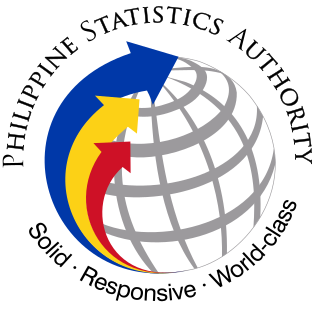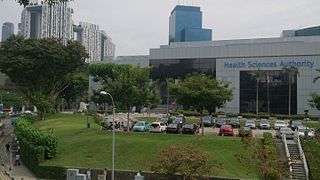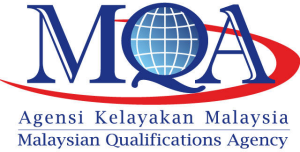
The Qualifications and Curriculum Development Agency (QCDA) was a charity, and an executive non-departmental public body (NDPB) of the Department for Education. In England and Northern Ireland, the QCDA maintained and developed the National Curriculum and associated assessments, tests and examinations, advising the minister formerly known as the Secretary of State for Education on these matters.

Education in Singapore is managed by the Ministry of Education (MOE). It controls the development and administration of state schools receiving taxpayers' funding, but also has an advisory and supervisory role in respect of private schools. For both private and state schools, there are variations in the extent of autonomy in their curriculum, scope of taxpayers' aid and funding, tuition burden on the students, and admission policy.

The Quality Assurance Agency for Higher Education, usually referred to simply as the Quality Assurance Agency or QAA, is the UK higher education sector's independent expert quality body, with a remit to maintain and enhance the quality of teaching and learning in tertiary education in the UK and beyond. It conducts quality assessment reviews, develops reference points and guidance for providers, and conducts or commissions research on relevant issues.
The Office of the Gene Technology Regulator, supports the Gene Technology Regulator, and is a part of the Australian Government Department of Health and Ageing. The Office was established under the Commonwealth Gene Technology Act 2000. This legislation sets forth a nationally consistent regulatory system for gene technology in Australia.

The statutory boards of the Government of Singapore are autonomous organisations that have been tasked to perform an operational function by legal statutes passed as Acts in the Parliament of Singapore. The statutes define the purpose, rights and powers of each authority. These organisations would usually subsequently report to one specific ministry. This list includes both current and new statutory boards formed.

The Disclosure and Barring Service (DBS) is a non-departmental public body of the Home Office of the United Kingdom. The DBS enables organisations in the public, private and voluntary sectors to make safer recruitment decisions by identifying candidates who may be unsuitable for certain work, especially involving children or vulnerable adults, and provides wider access to criminal record information through its disclosure service for England and Wales.
A national qualifications framework (NQF) is a formal system describing qualifications. 47 countries participating in the Bologna Process are committed to producing a national qualifications framework. Other countries not part of this process also have national qualifications frameworks.

The Philippine Statistics Authority is the central statistical authority of the Philippine government that collects, compiles, analyzes and publishes statistical information on economic, social, demographic, political affairs and general affairs of the people of the Philippines and enforces the civil registration functions in the country.

The Health Sciences Authority (HSA) is a statutory board under the Ministry of Health of the Government of Singapore. It is a multi-disciplinary agency responsible for applying medical, pharmaceutical, and scientific expertise to protect and advance public health and safety.

Tertiary education in Australia is formal education beyond high school in Australia, consisting of both government and private institutions and divided into two sectors; Higher Education and Vocational Education and Training (VET) provided by government-owned TAFEs & private Registered Training Organisations (RTO). Australian Qualifications Framework (AQF), the Australian national education policy, classifies tertiary qualification into 10 levels: level 1 to 4 vocational certificates ; level 5 & 6 undergraduate diploma and advanced diploma; level 6 associate degree; level 7 bachelor degree, level 8 bachelor honours degree & graduate certificates and graduate diplomas; level 9 for master's degree; and level 10 PhD. Most universities are government owned and mostly self-regulated. For other institutes there are two national regulators for tertiary education for registration, recognition and quality assurance of both the "provider institutes" as well as the "individual courses" provided by the providers. Tertiary Education Quality and Standards Agency (TEQSA) regulates institutes which provide education from level 5 or above. Australian Skills Quality Authority (ASQA) regulates institutes which provide education from level 1 to level 6.
The Management Development Institute of Singapore (MDIS), founded in 1956, is the oldest non-profit vocational university for lifelong learning in Singapore. It offers a variety of degree programs such as business management, engineering, fashion design, nursing, mass communications, psychology and hospitality management.

The Malaysian Qualifications Agency is a statutory body in Malaysia set up under the Malaysian Qualifications Act 2007 to accredit academic programs provided by educational institutions providing post secondary or higher education and facilitate the accreditation and articulation of qualifications.

The Ministry of National Health Services, Regulation and Coordination is a cabinet level ministry of the government of Pakistan with responsibility for national public health.

ISS International School is a co-educational international school in Singapore. It is an International Baccalaureate (IB) World School founded in 1981 and offers IB curriculum from Kindergarten to Grade 12. and is located along Preston Road and Depot Road, in the Alexandra neighbourhood of Singapore.
Higher education accreditation is a type of quality assurance process under which services and operations of post-secondary educational institutions or programs are evaluated to determine if applicable standards are met. If standards are met, accredited status is granted by the agency.
The Insurance Regulatory and Development Authority of India (IRDAI) is a statutory body under the jurisdiction of Ministry of Finance, Government of India and is tasked with regulating and licensing the insurance and re-insurance industries in India. It was constituted by the Insurance Regulatory and Development Authority Act, 1999, an Act of Parliament passed by the Government of India. The agency's headquarters are in Hyderabad, Telangana, where it moved from Delhi in 2001.
The Tertiary Education Quality and Standards Agency (TEQSA) is Australia's independent national quality assurance and regulatory agency for higher education.
The Quality Council of India (QCI) was set up as a public private partnership model on the model existing in Netherlands at the time, where although the NAB was not owned by the government, yet it was supported by it and was exceedingly used as a third party agency to improve quality in departments and industry. QCI thus, came to be organized as an independent autonomous body that worked towards assuring quality standards across all spheres of economic and social activities. Key industry associations, i.e. Associated Chambers of Commerce and Industry of India (ASSOCHAM), Confederation of Indian Industry(CII) and Federation of Indian Chambers of Commerce and Industry (FICCI) became the promoters of the organizers and QCI got established under the Societies Registration Act in 1996 to provide accreditation services in various sectors for product, services and persons.
A preschool, also known as a kindergarten or child care centre in Singapore, is an educational establishment or learning space offering early childhood education to children before they begin compulsory education at primary school. All Singapore citizens born after 1 January 1996 and living in Singapore must attend a national primary school unless an exemption is granted.











